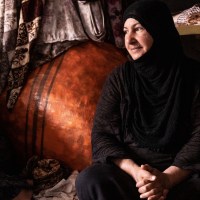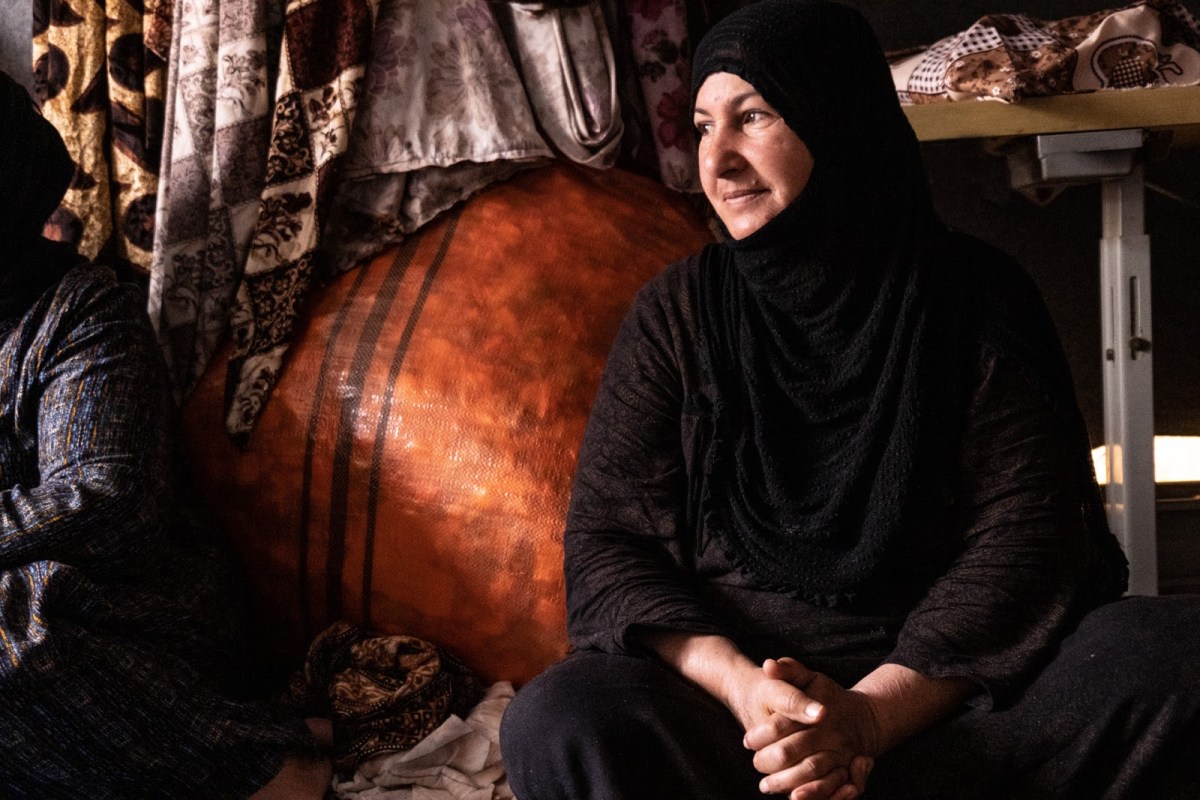She fled Salahuddin province with six children when ISIS approached. Then her husband passed away. Ever since, Amouna has been relying on the goodwill of her neighbors and a modest cash stipend from another aid group to see to the daily needs of her family.
With six mouths to feed and medical costs for a sick daughter, it wasn’t enough. Amouna had constantly needed to borrow to cover living costs, as well as try to get her business off the ground.
It was a precarious situation, one that never gave her family the stability she was working so hard for.
Amouna became popular among her neighbors in the refugee camp, for making the floor cushions commonly found in traditional homes. It was a business she began on her own, looking for a way she could support her family with a skill she had.
She was successful enough to amass a good number of customers, but for a long time, she had been borrowing money to buy supplies, and then using the profit to repay the debt. This was an obstacle that meant her profits were meager. There was always an initial debt attached to a sale, one that was very hard to clear.
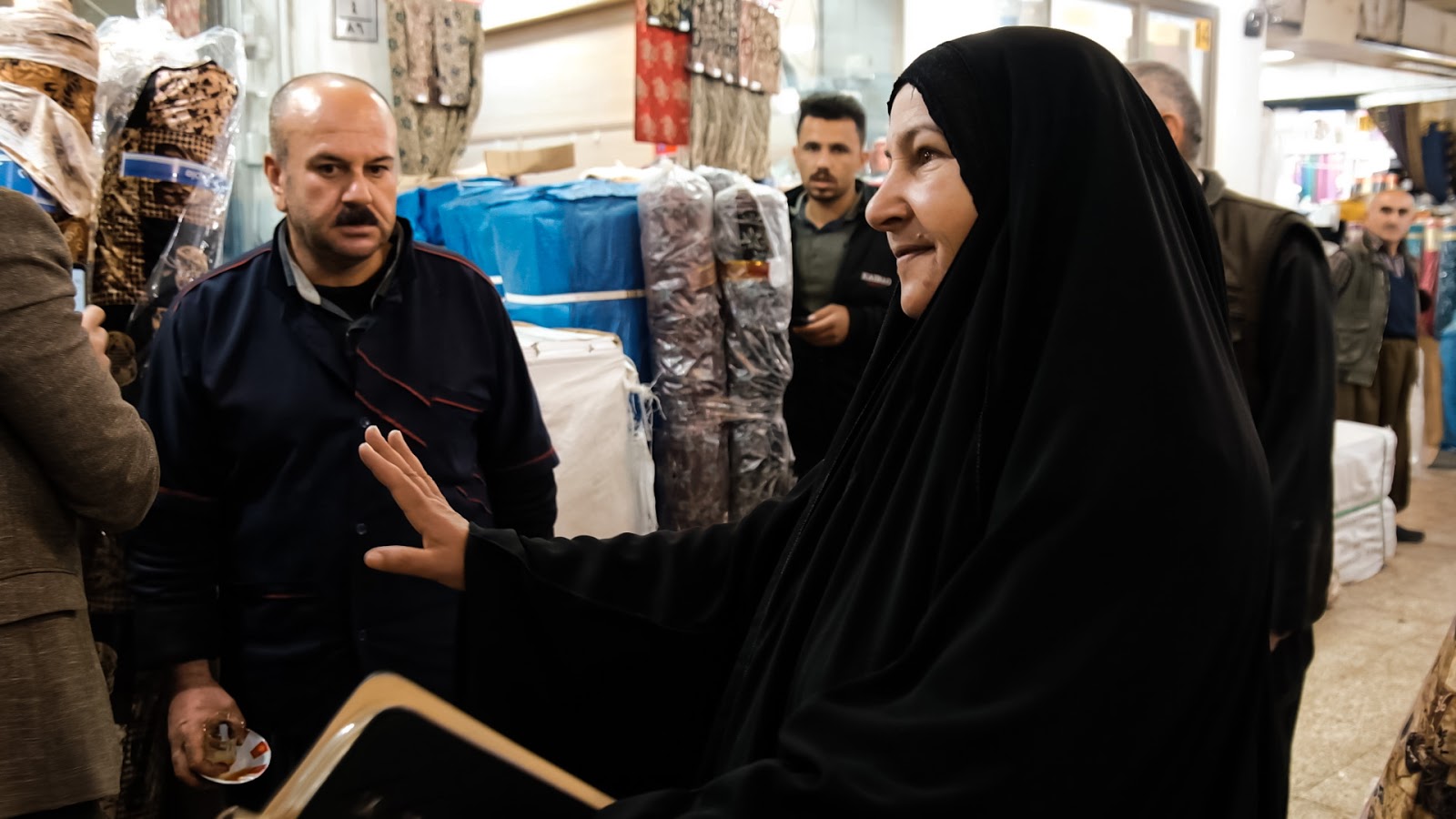
Back home, before she was forced to flee, Amouna was a farm worker, so she is no stranger to hard work. It was frustrating to her, to work harder and harder at her business without a corresponding increase in profits, and a parallel decrease in her dependence on others. And when other aid organizations’ support slowed down, life got a lot tougher, and her debt to her neighbors got higher.
That was the opposite of what Amouna wanted.
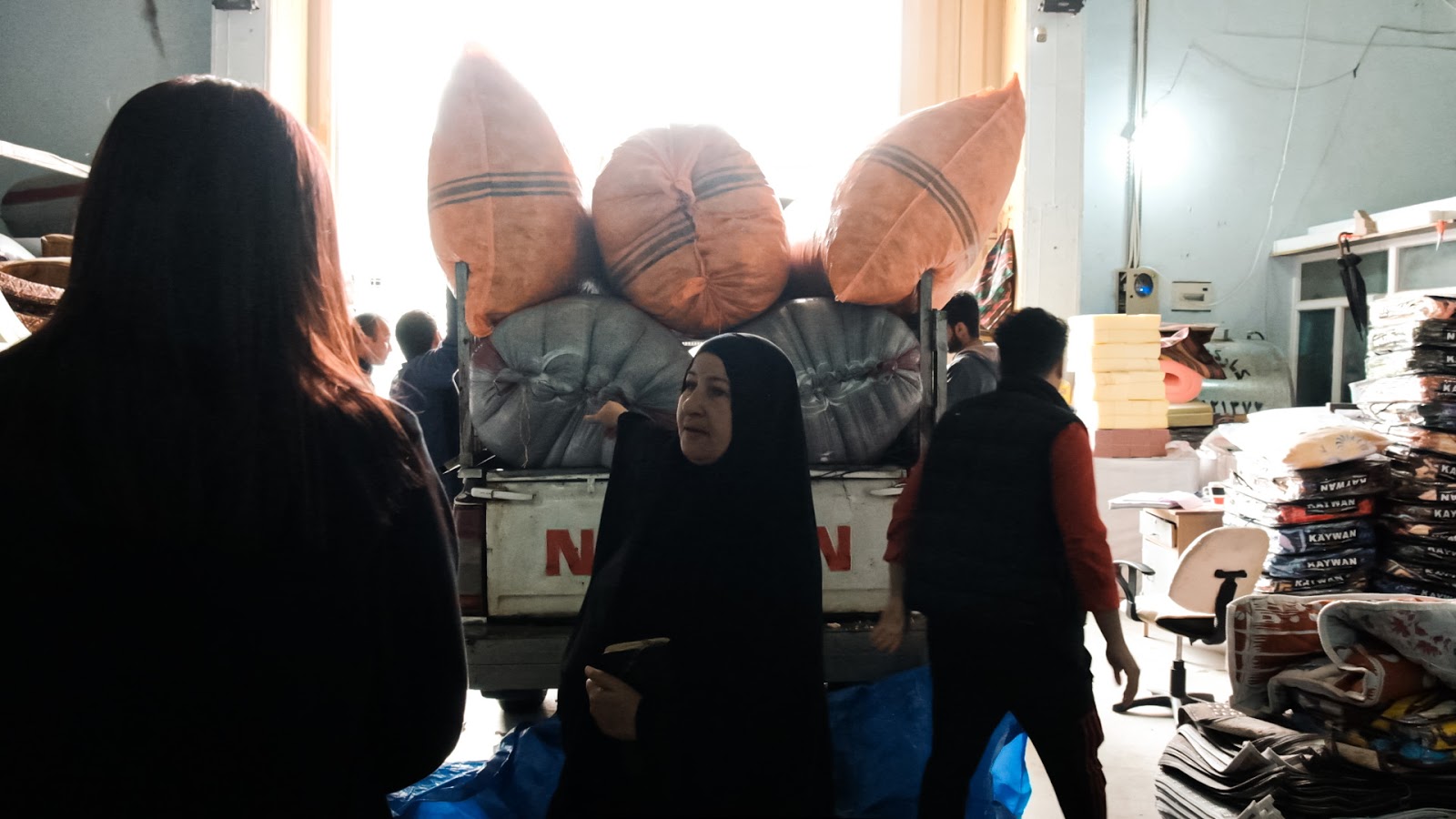
What she wanted was to provide for her family independently, beholden to no one. She had an established customer base and a sustainable price point. She had the skills, the business acumen, and an unflagging ability to work for her goals.
All she needed was a little bit of help, in the form of an initial batch of supplies that came without debt. That was the one thing that was holding her back, and without it, she knew she would be able to make the finances work out.
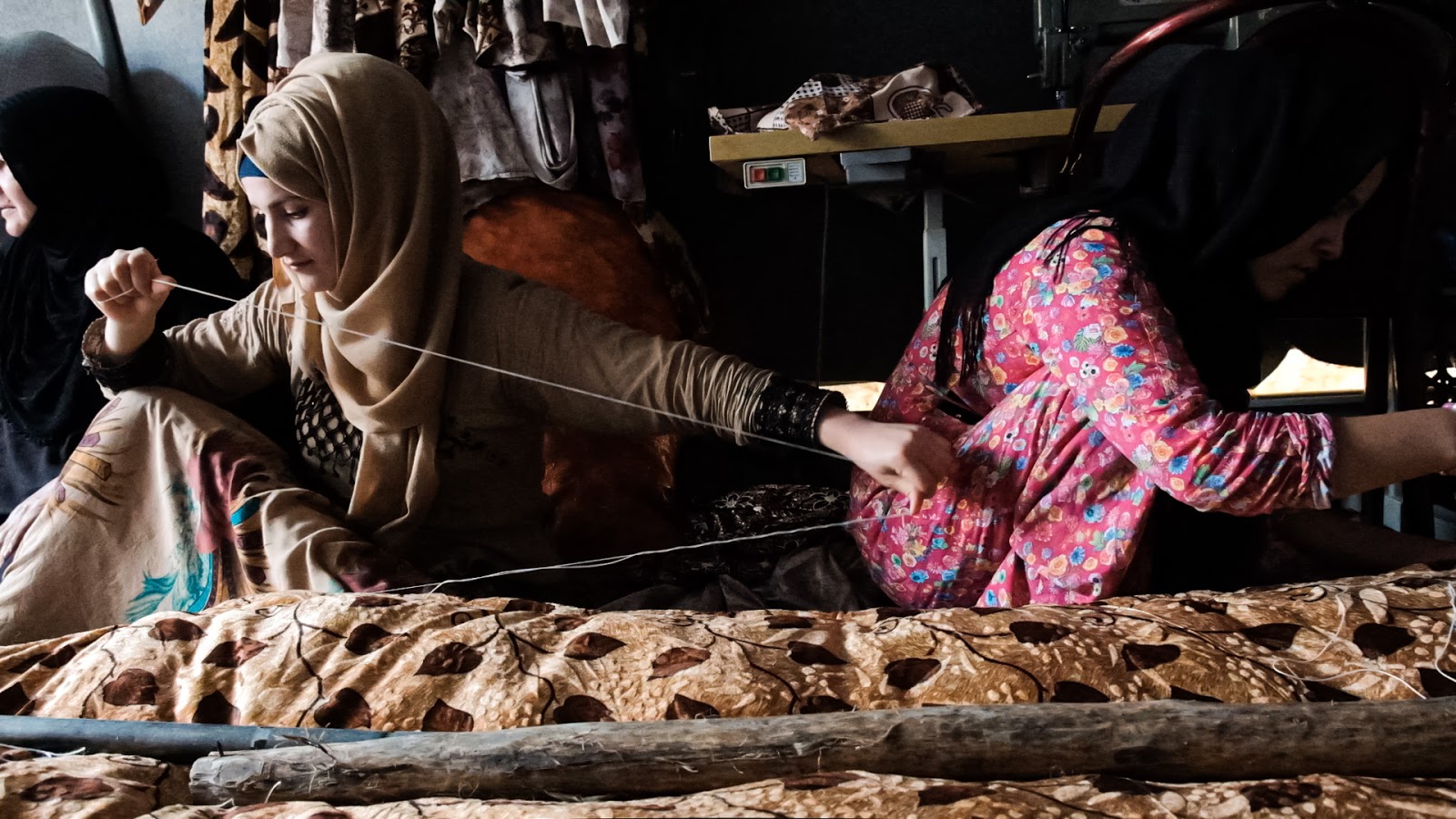
So you stepped in to help her. And what a difference you made to her life, and her family.
Today, mere weeks after she got her supplies with the money you donated, Amouna is providing so well for her family that they have not had to borrow a dime to meet their daily needs.
Amouna’s daughters are also helping their mother in making cushions, and they have expanded their product offering to a variety of cushions for other uses. They’ve had so many orders, that Amouna has started stocking the shop with pre-made cushions in popular styles, so customers can purchase them “off the shelf,” and don’t have to wait for an order to be finished.
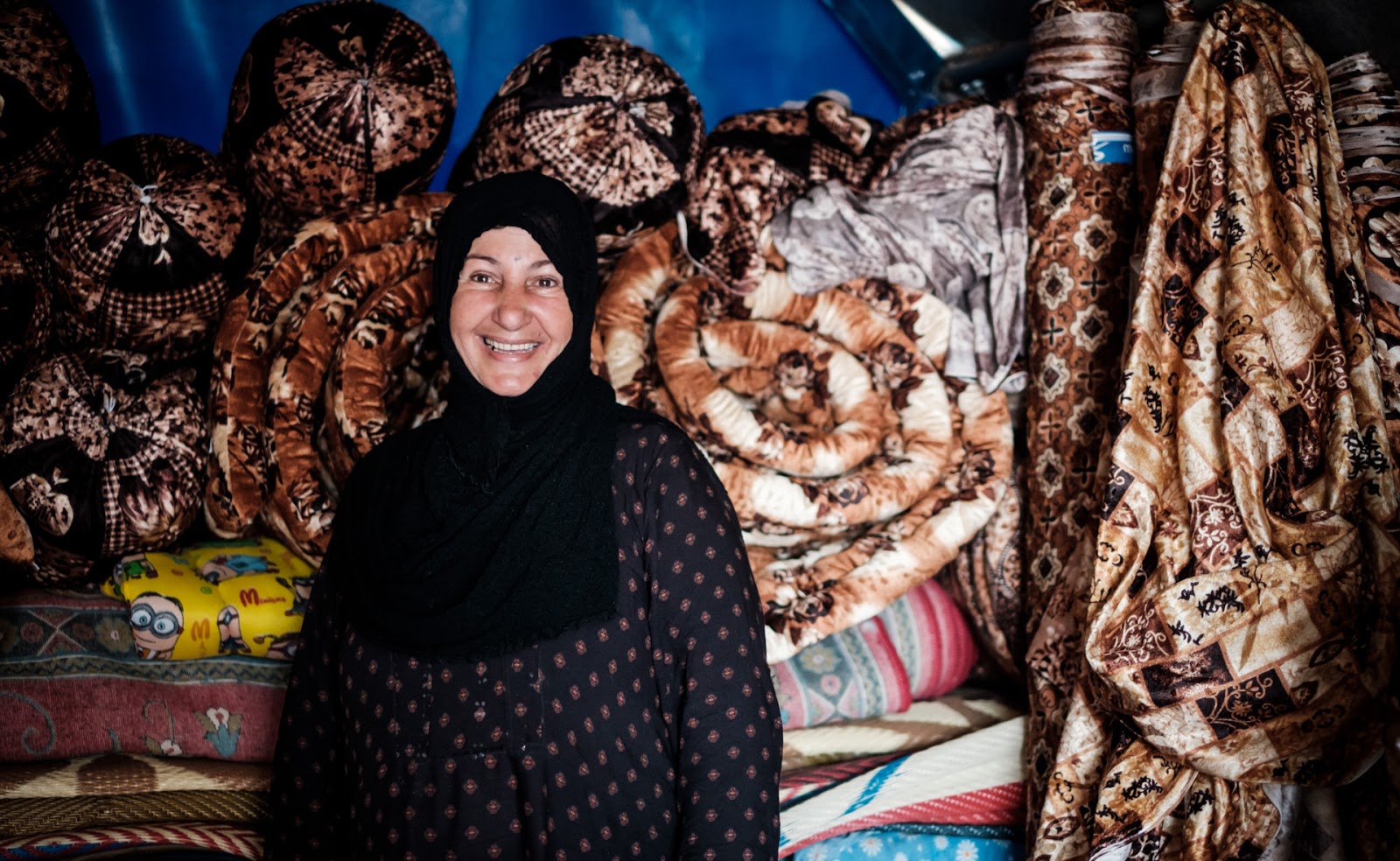
Amouna’s eyes sparkle when we visit her these days.
“Alhamdullilah!” (“thank God!” in Arabic) is a phrase she frequently utters, when we ask after her business and family life. Her successes are hers alone, but she knows that she could not have done it without your help. You made it possible for her to take that vital step to make the business really work, and give them what they needed to bootstrap their business.
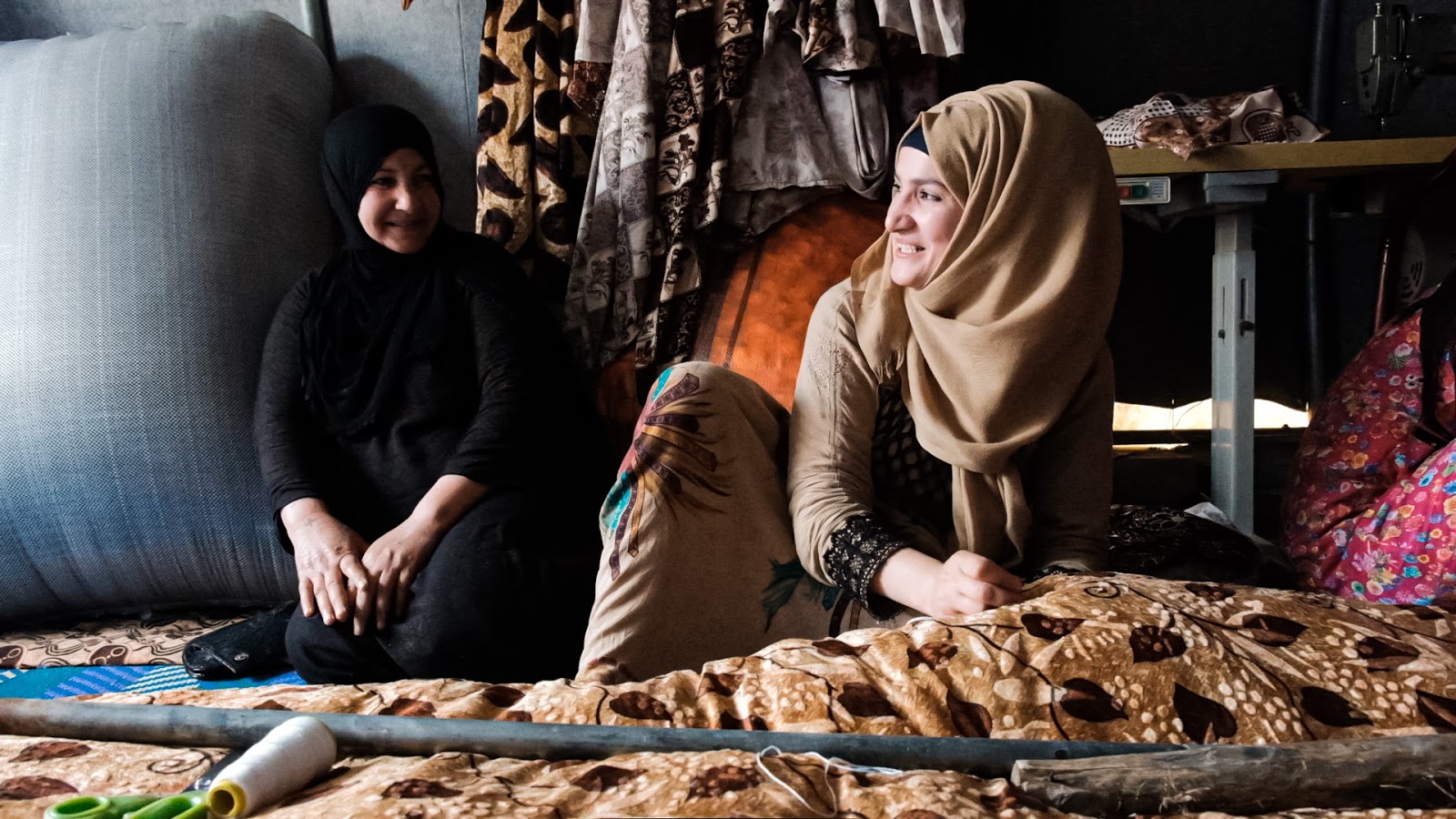
Thank you.
When you give to women like Amouna, you help entire families lift themselves out of the uncertainty of their situation.

